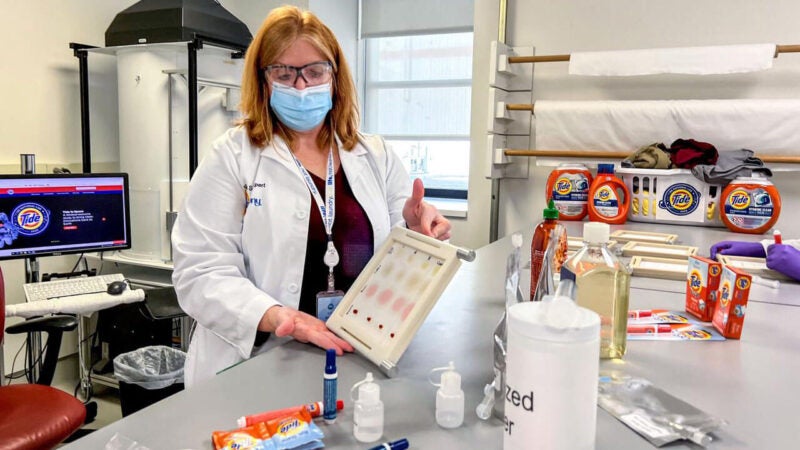Latest News

P&G is studying how its laundry products work aboard the ISS. Photo: P&G, via ISS National Laboratory
Designing for resource constraints in space can impact climate resiliency on Earth, a Procter & Gamble executive told attendees at the Space Economy Summit hosted by The Economist on Thursday.
Multinational consumer goods company P&G has worked with NASA since the Apollo program, when it provided personal care products for the Apollo 11 mission. Today, P&G is testing a fully degradable detergent called Tide Infinity with NASA on the International Space Station.
There is only so much water the ISS can carry, so astronauts can’t wash their clothes. Tide Infinity is designed to work in the close-loop water system on the ISS.
To design this product, P&G had to think differently about all of the components that go into the cleaning process to come up with something that will remain stable in a micro- or zero-gravity environment, said Jerry Porter, P&G’s chief R&D and innovation officer of Fabric & Home Care, Flavor & Fragrance.
Porter views the work with NASA and the ISS as a catalyst for P&G to make more progress toward its sustainability goals on Earth.
“Because [space] is a highly constrained environment, it is going to be a great ecosystem for innovation that allows us to bring technology to accelerate how we reduce our carbon footprint,” Porter said. This ties in with work P&G does on cold water detergent, which reduces the energy impact of laundry.
“We see this as a catalyst for us learning how to make super concentrated, super efficient detergents that really can work in resource-constrained environments like water scarcity,” Porter added.
Stay connected and get ahead with the leading source of industry intel!
Subscribe Now